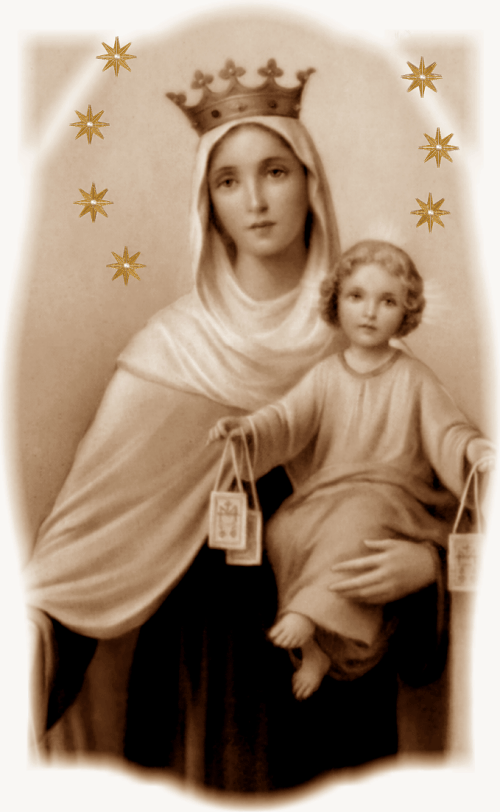|

The Revelations
of St. Gertrude the Great
COMPILED BY THE RELIGIOUS OF HER MONASTERY
CATHOLIC TREASURES, NOVEMBER 1980
Human consolation weakens that which is Divine.
Gertrude
received another clear testimony, although she did not understand it
very well at first, that contradictions and privation of consolation in
suffering greatly increase merit. On a certain day, about the Feast of
Pentecost, as she suffered such severe pain in her side that those who
were present feared her last hour had arrived, her Beloved, the true
Consoler of her soul, retired from her and thus increased her
suffering, although the cares and attentions of those who surrounded
her were redoubled. When she was less carefully
attended, this loving Lord remained near her, to solace the severity of
her pain by His presence, thus making her understand that when we are
deprived of human consolation the Divine Mercy regards us most
favourably.
Towards evening, as the Saint was worn out by acute suffering, she
sought to obtain some mitigation of it from our Lord. But He raised His
right arm and showed her the pain she had endured all day as a precious
ornament on His bosom. As this ornament appeared so perfect and so
complete in every part, she rejoiced, hoping that her suffering would
now cease. But our Lord replied: "What you suffer after this will add
brightness to this ornament." Certainly, although it was garnished with
precious stones, the gold appeared dark and dull. What she suffered
afterwards was not so grievous in itself, but she was more tried by
being deprived of consolation than by the acuteness of the pain.

How vile and despicable are all
transitory pleasures.
About the Feast of St. Bartholomew, Gertrude felt herself overwhelmed
with an exceeding sadness and a temptation to impatience. This caused
such darkness in her soul, that she appeared insensible to all the
pleasures which the presence of God imparted to her and light was not
restored to her until the following Saturday through the intercession
of the Mother of God, when they sang in her honour the Antiphon which
commences "Mary, Star of the sea." The following day, as she rejoiced
inwardly at the sweetness and tenderness with which God treated her,
she began to reflect on her late impatience and her other faults. Then,
feeling exceedingly displeased with herself, she prayed to God for her
amendment, but with such discouragement that, beholding the enormity
and the multitude of her faults, she cried out in despair: "God of
mercy, set bounds to my malice, since I place neither end nor measure
to it! 'Deliver me, O Lord, and set me beside Thee and let any man's
hand fight against me'" (Job xvii. 3).
Our Lord, compassionating her extreme affliction, showed her a small,
narrow garden, filled with many beautiful flowers, but surrounded with
thorns, through which a little stream of honey flowed. He said to her:
"Would you prefer the pleasure which you might enjoy here to Me?" She
replied: "Assuredly not, O Lord my God." Then He showed her another
little garden, filled with mire and dirt, but covered with some
verdure, and containing a few common flowers. Being asked likewise if
she would prefer this, she turned away from it to show her aversion and
exclaimed: "May I never prefer the fearful illusion of an apparent
good, which conceals a real evil, to Him Who is the only sovereign,
true, unchangeable and eternal Good!" Our Lord replied: "Why then, do
you mistrust, as one deprived of charity; since the favours with which
I overwhelm you are a proof that you possess it? And why do you speak
despairingly because of your sins since Scripture testifies that
charity covers a multitude of sins, when you do not prefer your will to
Mine, although by following it you might live without trouble, and in
honour, in the esteem of men and with a reputation for sanctity? I have
represented this self-will to you under the figure of a garden filled
with flowers and the pleasures of a sensual life by the verdure which
covered the mire." She replied: "Oh, would to God a thousand times
that, by the contempt of the garden of flowers, which Thou hast shown
me, I may have altogether renounced my own will! But I fear the
insignificance of the place disposed me to do so more easily." "It is
thus," our Lord replied, "that, in guiding the consciences of My elect,
I only let them see temporal advantages to a small extent in order to
avoid exposing their weakness to great temptation and to inspire them
more easily with contempt for the false pleasures of earth."
Then Gertrude renounced entirely all the pleasures of Heaven and earth
and cast herself with such constancy and fervour into the bosom of her
Beloved, that she believed no creature would now be able to remove her
for a single moment from His arms, where she tasted with joy that
life-giving draught which flowed from the wounded Side of her Lord and
whose sweetness infinitely surpassed that of the most precious
balm. |
 E-MAIL E-MAIL
HOME-------------------------------SAINT
GERTRUDE
www.catholictradition.org/Gertrude/revelations3.htm
|

 E-MAIL
E-MAIL

 E-MAIL
E-MAIL